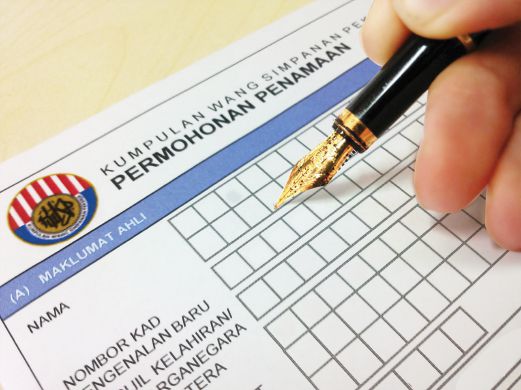REVOCATION OF GRANT OF PROBATE AND LETTERS OF ADMINISTRATION IN MALAYSIA
REVOCATION OF GRANT OF PROBATE AND LETTERS OF ADMINISTRATION IN MALAYSIA
When a person dies, all his assets must be properly managed regardless of whether he dies testate or intestate. If a person dies testate, his will will be the document in determining the manner for the distribution of the testator’s assets upon his death among his intended beneficiaries. Section 2 of the Wills Act 1959 defines a will as,
“a declaration intended to have legal effect of the intentions of a testator with respect to his property or other matters which he desires to be carried into effect after his death and includes a testament, a codicil and an appointment by will or by writing in the nature of a will in exercise of a power and also a disposition by will or testament of the guardianship, custody and tuition of any child.”
In contrast, if a person dies intestate, all his assets will be distributed in accordance with the Distribution Act 1958 and not according to his wishes or needs of his family members. A person with interest to the estate of the deceased can apply to be appointed as the administrator of the estate of the deceased.
In the event Grant of Probate is extracted from the High Court or Letters of Administration is extracted from the High Court, AmanahRaya Berhad or district land office, the estate of the deceased can be administered by the appointed executor or administrator.
The executor or administrator of the estate must hold the responsibility to pay debt of the deceased, administer and distribute the estate in accordance with the wishes of the testator or to the law. Meanwhile, the beneficiaries to the estate can enquire the executor or the administrator to provide a complete inventory and accounts concerning the estate. Similarly, as an executor or administrator to an estate, it is very crucial to keep an accurate account of the estate and be ready if the situation requires for the accounts to be rendered before the beneficiaries upon being called to do so. If executor or administrator fails to provide a complete inventory and accounts concerning the estate and can be proven guilty for breaching his fiduciary duties towards the beneficiaries, the Grant of Probate or the Letters of Administration may be revoked upon application to the High Court by the estate’s beneficiaries. Such a revocation is under Section 34 of the Probate and Administration Act 1959 (“PAA 1959”) which reads as follows,
“Any probate or letters of administration may be revoked or amended for any sufficient cause.”
In a situation where beneficiaries are of the view that the executor or administrator commits any misconducts or improper administrations of the estate, the High Court’s jurisdiction under Section 34 PAA 1959 can be invoked. In the case of Ligar Fernandez v Eric Claude Cooke [2002] 6 CLJ 152, it was held that,
“Section 34 PAA 1959 provides that a probate may be revoked for any sufficient cause. The welfare and the interests of the beneficiaries of an estate would be the paramount criterion in deciding whether there was a sufficient cause for the courts to interfere. It is an objective test whereby the plaintiff ought to adduce sufficient evidence to raise a strong suspicion of the defendant’s inaction, want of diligence and honesty, or a conflict-of-interest situation or inability to act.”
In this case, there was sufficient evidence proving that the transactions perpetrated by the defendant as the executor of the estate were suspicious and not for the benefit of the estate. The defendant had committed a transfer of assets and shares of the deceased’s company to a company where he was the substantial shareholder and the director in charge to himself and his relatives in which to be improper as the assets and shares should be distributed to the beneficiaries of the estate. Hence, by such suspicious transactions, the Grant of Probate issued to the defendant was revoked by the court and the defendant was removed from being as the executor of the estate.
The phrase “sufficient cause” has not been defined but the courts have always inferred the phrase to the welfare and the interests of the beneficiaries of an estate as the paramount criterion in deciding whether there is sufficient cause to interfere. In Damayanti Kantilal Doshi & Ors v Jigarlal Kantilal Dosni & Ors [1998] 4 CLJ 81, it was held that it is immaterial if the allegations of the defendant’s conduct are true or not. If it can be objectively determined that the allegations can raise a reasonable suspicion towards the administration of the estate, then the revocation of the Grant of Probate or Letters of Administration may be succeeded.
Besides that, the court has the discretionary power to amend the Grant of Probate or Letters of Administration. In Yap Ngen Sang v Yap Yoke Chong [2018] 10 CLJ 657, the determination of the heirs of the deceased to be appointed as the administrator and beneficiaries of the estate may result to an amendment to the Letters of Administration that had been issued. In this case, the court had decided that for a proper administration of the estate and the best interest of all beneficiaries, amended the Letters of Administration by ordering the plaintiff to be added as a personal representative and beneficiary of the estate of the deceased.
To conclude, after a Grant of Probate or Letters of Administration has been extracted, it can be revoked based on sufficient cause pursuant to Section 34 PAA 1959. The executor or administrator of an estate must be accountable for carrying out his duties in executing and administering the estate of the deceased. Beneficiaries can also play a significant role in ensuring the distribution of the estate is properly done without any conflicts or disputes. If conflict or dispute arises, application for revocation or amendment to the Grant of Probate or Letters of Administration can be filed as provided by the law.


















